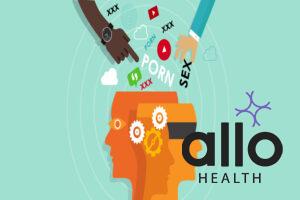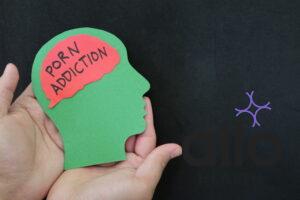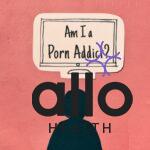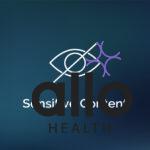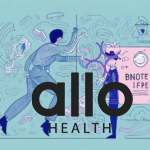How Long Does It Take to Recover from Porn Addiction?

Allo Health is dedicated to personalized well-being, offering support and trusted information tailored to individual health goals. The platform emphasizes human-generated content, led by a distinguished medical team of experts, including physicians and sexual health specialists. Their commitment to credibility involves rigorous fact-checking, authoritative research, and continuous updates to ensure accurate, up-to-date information. Allo Health's unique approach goes beyond conventional platforms, providing expert-led insights and a continuous commitment to excellence, with user feedback playing a crucial role in shaping the platform's authoritative voice.

Dr. Warisha holds an MBBS degree from GMERS Medical College, Ahmedabad. She has an in depth experience on sexual and reproductive health and rights.
Why This Was Upated?
Our experts continually monitor the health and wellness space, and we update our articles when new information became available.
Updated on 19 August, 2023
- Article was updated as part of our commitment to diversity, equity, and inclusion.
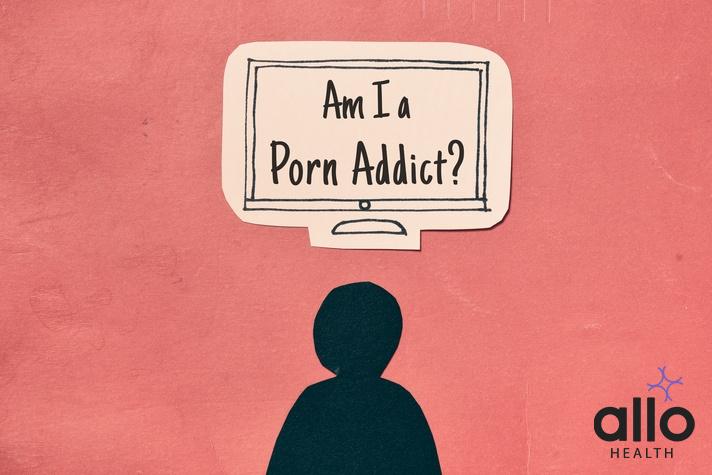
"The following blog article may discuss medical treatments and interventions. However, it is important to note that the information provided is for general educational purposes only and should not be considered as a substitute for professional medical advice, diagnosis, or treatment. Always seek the guidance of a qualified healthcare professional for personalized medical advice.
Book consultation
Medical treatments are complex and should be tailored to individual circumstances. The information presented in this blog may not be applicable to everyone, as each person's medical condition, history, and needs are unique. Only a qualified healthcare professional can evaluate your specific medical situation, consider relevant factors, and provide appropriate recommendations for diagnosis, treatment options, and monitoring.
It is crucial to note that self-diagnosis, self-medication, or relying solely on the information provided in this blog for treatment decisions can have serious health consequences. "
Porn addiction is a serious problem that can have lasting effects on an individual’s mental health and well-being. Recovering from porn addiction is not an easy, quick process and differs from person to person. However, with the right approach, it is possible to overcome the addiction and lead a fulfilling life.
Let’s explore the various aspects of recovering from porn addiction in exhaustive detail.
What is Porn Addiction: Symptoms and Causes
- Porn addiction is a behavioral addiction disorder that centers around the compulsive use of pornography.
- People who suffer from porn addiction are unable to resist the urge to view pornographic material despite negative consequences such as damaged relationships, decreased productivity, and overall life satisfaction.
- Some of the common symptoms of porn addiction include excessive pornography use, difficulty in controlling the urge to view porn, and continued pornographic behavior despite knowing the negative consequences.
- Porn addiction can be caused by various factors such as genetics, brain chemistry, and life experiences.
- Porn addiction can have serious consequences on an individual’s mental health. Studies have shown that individuals with porn addiction are more likely to experience depression, anxiety, and low self-esteem.
- Additionally, porn addiction can lead to the development of other addictive behaviors such as substance abuse or compulsive gambling.
- The accessibility of pornographic material on the internet has made it easier for individuals to develop an addiction. With just a few clicks, individuals can access an endless supply of pornographic material, making it difficult to resist the temptation to engage in excessive porn use.
- Research has also shown that porn addiction can have negative effects on relationships and sexual functioning. Individuals who struggle with porn addiction may experience difficulty forming intimate connections with others and may struggle with sexual dysfunction, such as erectile dysfunction or premature ejaculation.
- Seeking professional help and support from loved ones can greatly aid in the recovery process for those struggling with porn addiction.
The Negative Impact of Porn Addiction on Mental Health
- Pornography addiction can have a significant negative impact on an individual’s mental health, leading to problems like depression, anxiety, and damaged self-esteem.
- It can also cause physical harm such as erectile dysfunction, decreased libido, and even other addictions.
- Pornography addiction may affect an individual’s overall mental and social well-being, including difficulties in maintaining healthy relationships with loved ones, coworkers, and friends.
- Porn addiction may also lead to financial problems, as individuals may spend excessive amounts of money on pornography or related activities. This can cause stress and strain on their personal finances, leading to further mental health concerns such as anxiety and depression.
- Additionally, individuals with porn addiction may experience a decrease in productivity and motivation, affecting their work or academic performance.
Brain Chemistry and Porn Addiction: The Science Behind It
- Studies show that pornography can impact our brain chemistry, triggering the release of the hormone dopamine, which is responsible for pleasure and reward.
- With excessive porn usage, the brain may develop a tolerance for this dopamine release, leading to the need for more significant pornographic material to stimulate the same pleasure centers.
- This effect, known as desensitization, can make it harder to quit porn use and lead to addiction.
- The good news is that neuroplasticity allows the brain to change in response to displayed behaviors and experiences. Therefore, with the right approach, it is possible to recover from porn addiction.
Common Triggers for Porn Addiction and How to Avoid Them
In most cases, porn addiction is triggered by some underlying factors, including:
- Stress
- Anxiety
- Loneliness
- Boredom.
The best way to overcome porn addiction is to identify and address the underlying triggers:
- Some of the ways to avoid triggers include avoiding situations that would lead to excessive porn use, such as having a smartphone or computer at hand when feeling lonely or stressed.
- It is essential to fill this free time with constructive and healthy behaviors such as exercising, spending time with loved ones, and pursuing hobbies.
- Another common trigger for porn addiction is a lack of intimacy or connection in one’s personal relationships. This can lead to seeking out a false sense of intimacy through pornography. It is important to address any concerns in personal relationships and seek out healthy ways to connect with others.
- Additionally, societal and cultural factors can also contribute to porn addiction. The normalization and accessibility of pornography in today’s society can make it difficult to avoid.
- It is important to be aware of these influences and actively work to counteract them by seeking out positive and healthy representations of sexuality.
Overcoming Porn Addiction: Step-by-Step Guide to Recovery
Recovering from porn addiction requires a concrete plan and determination.
- First, accept and admit that you have porn addiction and decide to change.
- Then, develop a set of achievable goals and focus on changing your habits. Set healthy boundaries, such as limiting screen time, to help avoid triggers.
- Avoid situations or people who may tempt you, and stay committed to your goals.
- It is also important to seek support from loved ones or a professional therapist. Porn addiction can be a difficult journey, and having a support system can make all the difference.
- Consider joining a support group or seeking therapy to help you navigate through the recovery process. Remember, recovery is a journey, and it is okay to stumble along the way.
- The most important thing is to stay committed to your goals and keep moving forward.
Seeking Professional Help for Porn Addiction Recovery
- In some cases, it may be necessary to seek professional assistance to overcome porn addiction.
- Therapy can offer a safe, non-judgmental environment to discuss your addiction and provide ways to tackle the underlying triggers.
- Working with a qualified therapist can help you develop healthy habits and teach you how to deal with future triggers.
- Seeking professional help does not mean you are weak or incapable of overcoming your addiction on your own.
- In fact, it takes a great deal of strength and courage to recognize when you need help and take action to get it.
- Additionally, there are many different types of therapy available, including individual counseling, group therapy, and online therapy, so you can find a treatment option that works best for you.
Support Groups for Porn Addiction Recovery: Pros and Cons
- Support groups is another option to consider as they provide a safe, non-judgmental environment where individuals can share their experiences and stories.
- They provide a sense of belonging and help reduce feelings of isolation, which is common among porn addicts.
- However, be careful to select an appropriate support group and to ensure that it aligns with personal goals and values. It is crucial to look for credible and qualified support groups that have a proven track of success.
- Another advantage of support groups is that they offer a network of people who understand the struggles of addiction to porn and can provide emotional support and encouragement. Members can also learn from each other’s experiences and gain new insights into their addiction.
- On the other hand, some individuals may find support groups to be too structured or rigid, and may prefer a more individualized approach to recovery.
- Ultimately, the decision to join a support group should be based on personal preferences and needs, and should be made in consultation with a qualified healthcare professional.
Coping Strategies for Dealing with Cravings during Recovery
- During the recovery process, it is normal to experience cravings for internet porn and to feel the need to indulge in pornography. It is essential to have a set of coping strategies to conquer these urges.
- Some of the coping techniques include mindfulness, meditation, physical activity, and deep breathing exercises.
- These techniques can help reduce anxiety, stress and allow you to take control of your thought patterns.
- Another effective coping strategy is to identify triggers that may lead to cravings. Triggers can be anything from stress, boredom, or even certain people or places. Once you have identified your triggers, you can develop a plan to avoid or manage them.
- For example, if stress is a trigger, you can practice stress-reducing activities such as yoga or journaling.
- It is also important to have a support system in place during your recovery journey. This can include friends, family, or a therapist. Having someone to talk to and lean on during difficult times can make all the difference in staying on track with your recovery goals.
- Remember, recovery is a journey, and it is okay to ask for help along the way.
Relapse Prevention Techniques for Long-Term Recovery from Porn Addiction
Recovering from porn addiction is not a one-time process. It requires consistent and long-term commitment. To ensure long-term recovery, it is essential to develop a set of relapse prevention techniques.
- Some of the relapse prevention techniques include seeking professional help and attending support groups.
- It is also essential to identify triggers and avoid situations that may lead to the behavior.
- Another important technique for relapse prevention is to develop healthy coping mechanisms. This can include engaging in physical activity, practicing mindfulness and meditation, or finding a creative outlet.
- It is also important to have a support system in place, whether it be friends, family, or a therapist, to turn to during times of stress or temptation.
- Additionally, it is important to address any underlying concerns that may have contributed to the addiction, such as past trauma or mental health disorders.
- Seeking therapy or counseling can help individuals work through these concerns and reduce the likelihood of relapse
Summary
- Porn addiction is a behavioral disorder characterized by compulsive pornography use despite negative consequences.
- It can lead to mental health issues such as depression and anxiety and affect relationships, sexual functioning, and finances.
- The addiction is linked to brain chemistry, particularly the release of dopamine, and can lead to desensitization.
- Common triggers for porn addiction include stress, anxiety, boredom, and loneliness, which can be managed by avoiding triggers and adopting healthier habits.
- Recovery from porn addiction involves setting goals, avoiding triggers, seeking support from loved ones or professionals, and potentially joining support groups.
- Coping strategies like mindfulness, physical activity, and deep breathing help manage cravings, while relapse prevention techniques involve seeking help, addressing triggers, and developing healthy coping mechanisms for long-term recovery.
Frequently Asked Questions
Q: I am unable to go a day without porn, what should I do?
A: If it’s causing you distress, seek professional help immediately, such as counseling or therapy, to address your addiction and develop strategies to reduce your dependence on porn. Additionally, consider joining a support group for added accountability and guidance.
Q: What are the withdrawal symptoms of porn addiction?
A: Withdrawal symptoms of porn addiction can include anxiety, irritability, insomnia, and strong cravings for pornographic material when attempting to abstain. These symptoms vary in intensity among individuals.
Q: How long does it take to recover from porn addiction?
A: The duration of recovery from porn addiction varies widely from person to person, but it often takes several months to years of dedicated effort and support. Long-term commitment and consistent efforts are essential for lasting recovery.
Q: Is it possible to recover from porn-induced ED?
A: Yes, it is possible to recover from porn-induced erectile dysfunction (ED) by abstaining from pornography and allowing the brain to reset its response to sexual stimuli. Recovery time varies, but many individuals experience improvements within a few weeks to months of quitting porn.

